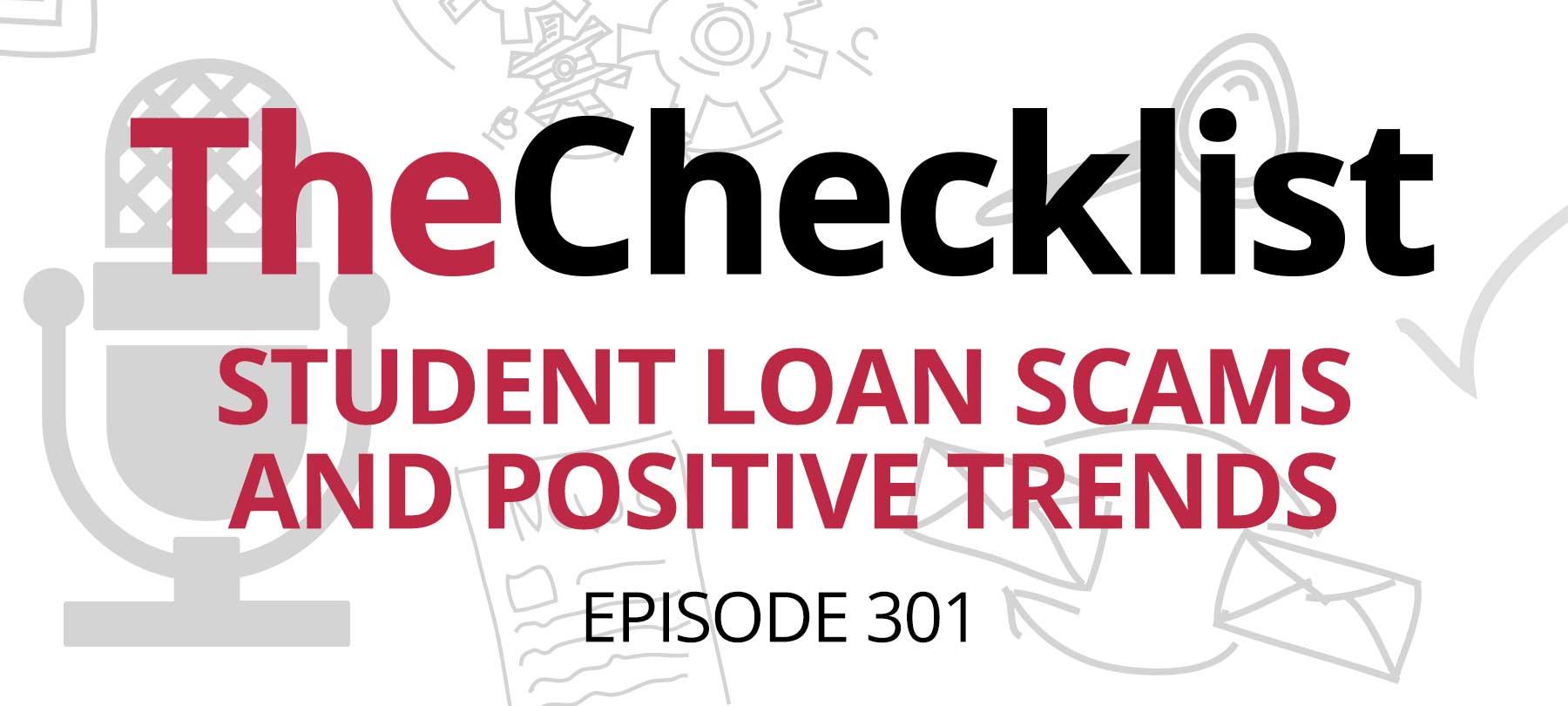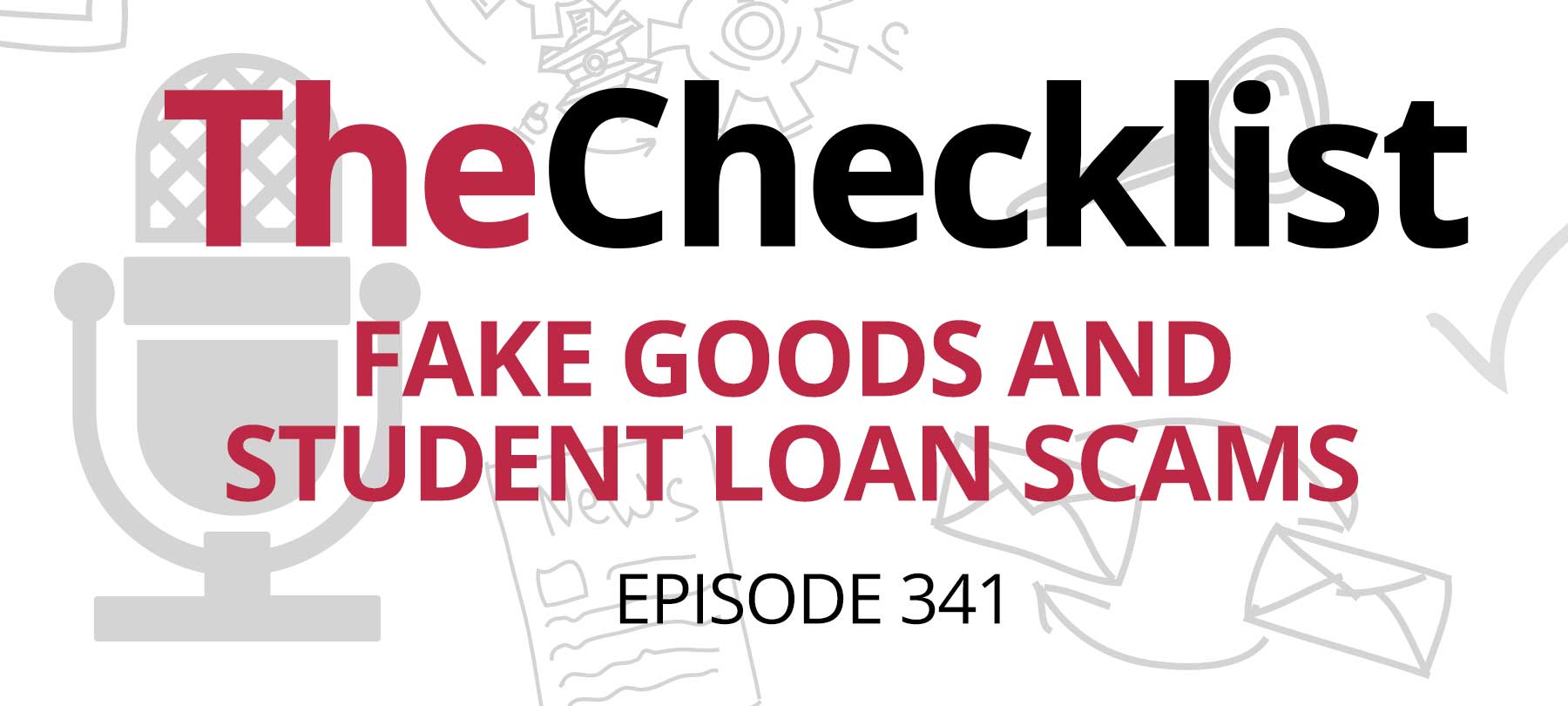
How to Avoid Student Loan Forgiveness Scams
The Biden-Harris Administration has announced a one-time plan to forgive up to $20,000 in student loans for those who qualify.
It’s big news. It involves money. And that makes it very, very likely that scammers will use this to take advantage of people. Read on to learn how to spot potential scams and keep yourself safe.
Are there any known student loan forgiveness scams?
Whenever something big is in the news, and for every major seasonal event, scammers try to take advantage of the situation. Examples include:
- Natural disasters and other tragedies
- COVID-19
- The 2022 Russian invasion of Ukraine
- The death of Queen Elizabeth II
- Valentine’s Day
- Tax season
- Black Friday shopping time
- The holiday gift-giving season
We haven’t heard of specific student loan forgiveness scams yet, but it’s almost certain that bad guys will attempt to use the federal student loan forgiveness program to defraud people.
How do these scams work?
Typically, scammers are after one of three things: money, data, or access. Thus their attacks tend to come in the form of:
- Phishing emails that direct recipients to malicious websites that steal personal information and/or account credentials.
- Phishing emails containing malicious file attachments or links to get the recipient to click on, download, or install malware
- Scam phone calls that attempt to obtain personal information or get money from the victim
- Scam text messages that contain malicious links or bogus callback numbers as a first step in perpetrating the types of attacks listed above
In a student loan forgiveness scam, scammers will mostly likely impersonate a trusted authority or someone offering help with loan forgiveness. This might include:
- A representative of the local, state, or federal government
- An employee of your student loan servicer or a bank, loan consolidation firm, or other financial institution
- A government agency or non-profit organization that helps people claim student loan forgiveness funds
- An employee of your college, university, or other educational institution
- A law enforcement officer
- An IRS or state tax authority agent
- A representative of a major tech company like Apple, Microsoft, or Google
How to spot a student loan forgiveness scam
Scams are diverse. But they have common features. Here are telltale signs of a scam to watch out for:
They contact you first
If someone contacts you out of the blue about student loan forgiveness, be extremely wary. It’s a good indication of a scam.
Their email contains typos, grammatical errors, or informal language
Banks, universities, and the federal government aren’t perfect. But they don’t send out emails with multiple grammatical errors or that begin “Hello my dear.”
They ask for highly sensitive information
No one should ever ask you for your password, bank details, or other sensitive personal information over the phone, via email, or by any other insecure means. If someone does this, assume that they are a scammer.
They ask for money (especially in weird ways)
A common scam tactic is to ask for money up front, usually with the excuse that it’s necessary in order to “process a refund” or “release funds.” But this just isn’t how legit organizations work. It’s a double red flag if they ask for the money in some non-standard, untraceable format such as gift cards or cryptocurrency. You can’t pay the federal government in Starbucks or Monero!
They rush you to take action
Scammers play on people’s fears — especially their fears of missing out or losing money. Thus they often use an exaggerated sense of urgency in their calls or emails. Examples might include things like:
“Act now or you will lose your right to claim $20,000 in loan forgiveness!”
“There was a problem with your account and we were unable to process your student loan forgiveness application. Verify your FSA ID details in the next 24 hours to avoid cancellation.”
“Urgent! Someone has applied for student loan forgiveness in your name. If this was not you, log in to your account immediately at this link in order to report fraudulent activity.”
If you receive one of these “the sky is falling” messages, take a deep breath and remember that scammers want you to act without thinking.
They use scare tactics
Scammers may try to bully or frighten people into doing what they want. They frequently use the threat of arrest or legal action, posing as law enforcement or the IRS.
If you get a call telling you that you’re “under investigation” for fraudulently applying for student loan forgiveness or an email warning you that you’re “going to be audited” because you didn’t report your student loan relief as income, don’t be intimidated, and don’t engage. And no, you can’t pay the police with Target gift cards!
How to avoid student loan forgiveness scams
We’ve just given you a lot of information to digest, and as you can see, there are all kinds of potential scams out there. But the good news is that in cybersecurity, simpler is often safer. Here are three easy steps to take that will reduce your chances of being the victim of a student loan forgiveness scam:
Limit your sources of information
Scams make it hard to know who to trust. Solution? Narrow your sources of information to one or two trusted authorities.
In the case of student loan forgiveness, this is actually very easy to do, because the US government already has a website with details of the program.
Visit the StudentAid.gov website for information about debt cancellation, important deadlines, and more. If you don’t already have an account on StudentAid.gov, you can create one and protect it with two-factor authentication. Your StudentAid.gov account dashboard will also have information about who your loan servicer is — you can create a secure account with that company as well.
Aside from this government website and your loan servicer, there should be no need to talk to anyone else about student loan forgiveness.
Don’t accept unsolicited communication
If someone reaches out to you by email, phone, or text claiming to be from the government or your loan servicer — and you did not initiate the communication — the best thing to do is follow up independently.
By this we mean:
Don’t reply to an email or text, click a link, or download anything that was sent to you. Investigate issues by logging into your secure account area on your own. As above, keep it simple. You have a secure StudentAid.gov account dashboard. Use it!
If someone calls you, don’t engage. Thank them and tell them you’ll call back later, then hang up. Remember that scammers often set up fake phone numbers and give them out to their victims, so don’t trust any number given to you over the phone, in an SMS or by email. If you really need to make a call, look up the relevant customer service number online by yourself and call that.
Learn more about scams in general
To beat a scammer, you have to get inside the mind of a scammer. Luckily, it’s not hard to do.
Scammers aren’t particularly creative or hardworking. If they were, they’d start a business or get an actual job. They tend to go with what they know — reusing scams that have worked before and copying other scammers’ tactics. Because of this, the best way to predict what scammers are likely to do is to look at what they’ve done in the past.
To learn more about scams related to student loans, see the government’s information page: 3 Ways to Spot Student Loan Scams.
We’ve also written a lot about scams and social engineering on this blog, and discussed these topics extensively on The Checklist podcast. For a crash course in scams and how to avoid them, check out:
Checklist 270: Avoiding Tax Scams
Checklist 263: QR Code Phishing Scams
Checklist 211: How to Avoid a Scammy New Year



